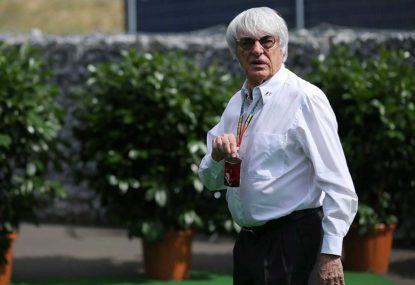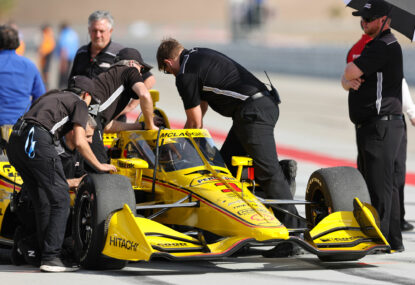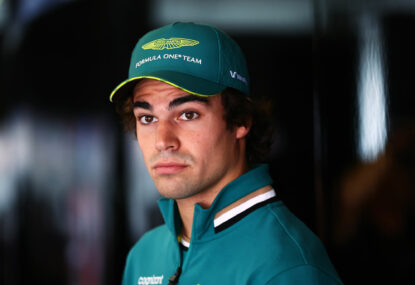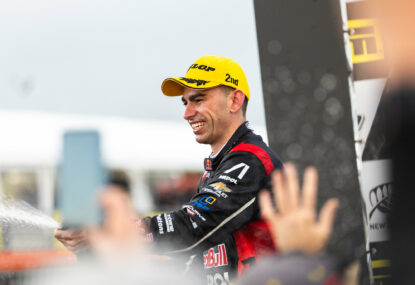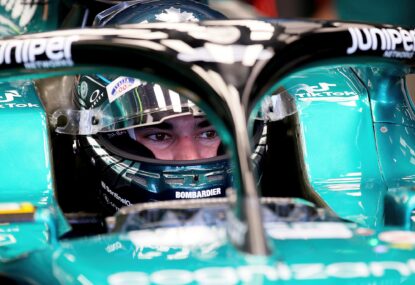For a story that had been rumoured for years, the confirmation almost took Formula One by surprise.(Click to Tweet)
CVC Capital Partners, the private equity firm in control of the commercial rights of the world’s biggest motorsport, made a joint announcement with purchasing company Liberty Media on Thursday (AEST), confirming the transfer of powers had begun.
Liberty Media owns 18.7 per cent of the business after this week’s sale, and it will take 100 per cent control by March next year, drawing to a close CVC’s contentious tenure as exploiter of the commercial rights.
Between now and then Chase Carey, a former high flier at 21st Century Fox, will be installed as chairman, marking the beginning of a new era for the sport.
“I would like to welcome Liberty Media and Chase Carey to Formula One and I look forward to working with them,” said Bernie Ecclestone, continuing CEO of the Formula One.
‘Continuing’ is a key word after Sunday in Monza was dominated by talk not simply of the sale but of the potential imminent departure of Bernie Ecclestone.
Watching the reaction of the sport’s major players to the news was fascinatingly demonstrative of how integral Ecclestone is perceived.
This is not to say he isn’t – as it is today, a web of complex contracts very deliberately distributing power and money through the sport, removing Bernie overnight would prove cataclysmic – but will he always be the keystone?
The evolution of Formula One on his watch has been as varied as it has been lucrative. Formula One as it is today – a cashed-up, globe-trotting, eye-catching show of magnitude – is down to Ecclestone seeing its potential and, critically, taking a risk on growth when no others, specifically the teams themselves, were willing to have skin in the game.
His early stewardship will be characterised by whipping the category into shape sufficient to have broadcasters commit to televising every race of each season in a package format, and upon the proliferation of these television deals the race hosting fee and advertising components of the business have thrived.
More money, more races, more advertisers, more TV deals, more money – the cycle continued, and Formula One is now one of the biggest sports by viewership in the world.
But Ecclestone has also presided over a slow and painful decline.
After CVC acquired the commercial rights the rivers of gold began flowing almost exclusively out of the sport.
By his hand contracts were drawn that squeezed race promoters – new and heritage promoters alike – to breaking point. Today a season doesn’t pass without speculation of any number of classic races dropping off the calendar, be they British, Italian, German, or otherwise.
The unequal commercial terms upon which the teams compete were also coordinated by Ecclestone to facilitate an attempt by CVC to float the sport on the Singapore stock exchange. Offering favourable deals to the big teams locked them in long term, increasing the sport’s value – but when the floatation was abandoned, the sport was left with an unworkable and unloved power framework.
So it is that Ecclestone, were he to leave the sport in the near future, the risk of which persists despite his talk of a three-year agreement with the new owners, would do so with a battered reputation in the eyes of sport fans.
Does it matter to him? Probably not, given his prime motivation has always been dealing for the sake of dealing, but if his place in the sport’s narrative, still so young in global sport terms, counted for anything, Bernie’s could yet find redemption.
Provisional owner Liberty Media purports to have bold and exciting plans for the sport it says has enormous untapped potential.
Through the multimedia empire of company owner John Malone the development of innovative new delivery platforms for a sport in chronic audience decline will boost its flagging fortunes. With more viewers come more sponsors, and with more sponsors comes more money – and for a company with a record of investing in its sporting properties, more money means a healthier Formula One rather than healthier venture capitalist wallets.
Liberty sums up its key opportunities are to “increase promotion and marketing of Formula One as a sport and brand; enhance distribution of content, especially in digital; establish broader range of commercial partners, including sponsorship; evolve race calendar; leverage Liberty’s expertise in live events and digital monetisation”. The vast majority of these aims have been notably absent from the commercial rights holder’s management of Formula One.
Where does this leave Ecclestone?
In the short time he may have left actioning the designs of the commercial rights holder as CEO he will either prove adaptable to change and an enabler of revolution or have his reputation as an obstruction to the continued operation of his own train set confirmed. If the latter comes to pass, his sweeping out of the sport with any other parts not to Liberty’s liking is inevitable.
As Formula One ventures belatedly into the modern world of sport media, Bernie can choose whether to join it on the journey or fade stubbornly into history.
Follow @MichaelLamonato on Twitter.





























































































